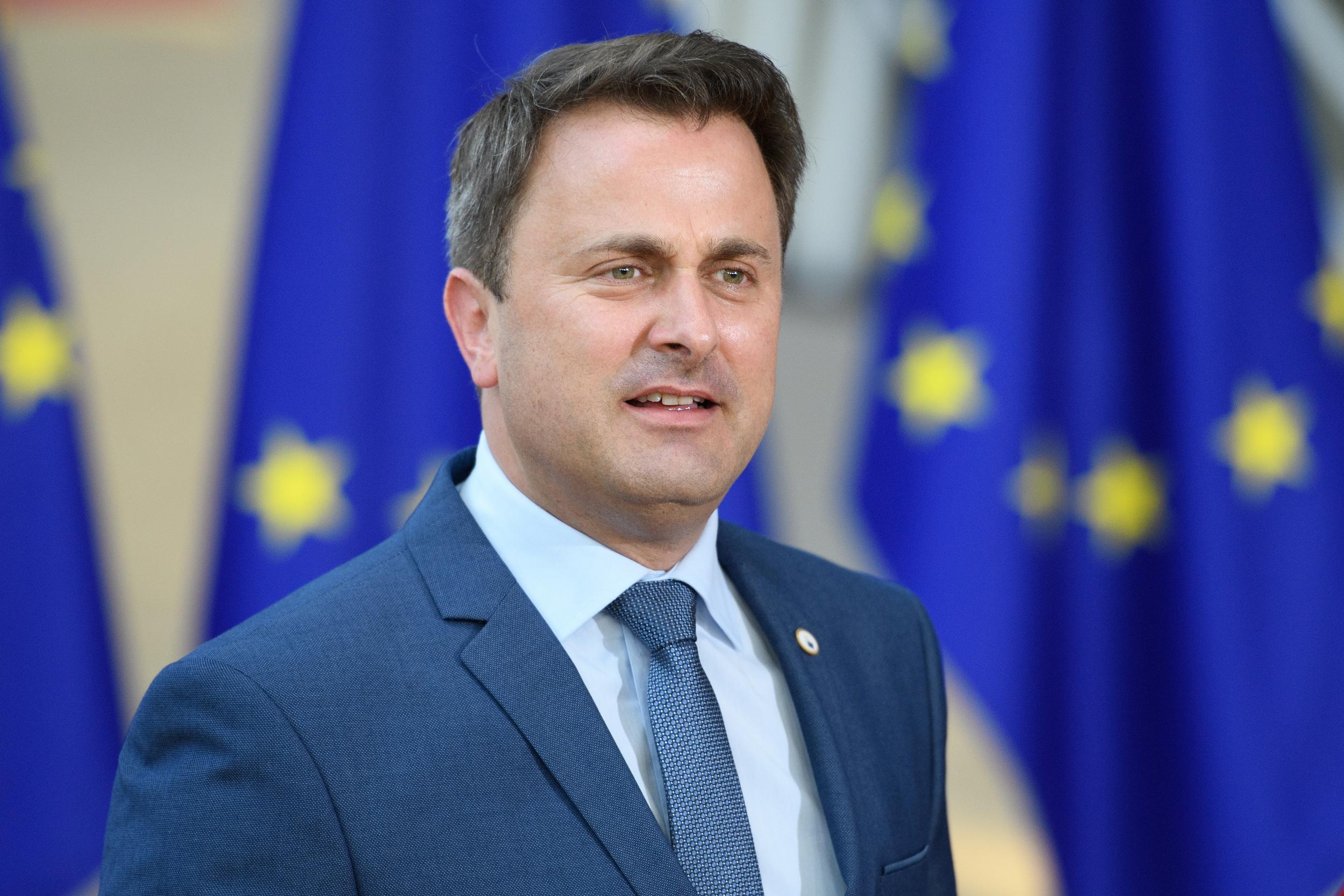Luxembourg’s Prime Minister warns of a £54bn Brexit ‘divorce bill’
Xavier Bettel added: ‘It is now time for the European Union to make an analogy with the famous quote of Mrs Thatcher, ‘We want our money back’’

Your support helps us to tell the story
From reproductive rights to climate change to Big Tech, The Independent is on the ground when the story is developing. Whether it's investigating the financials of Elon Musk's pro-Trump PAC or producing our latest documentary, 'The A Word', which shines a light on the American women fighting for reproductive rights, we know how important it is to parse out the facts from the messaging.
At such a critical moment in US history, we need reporters on the ground. Your donation allows us to keep sending journalists to speak to both sides of the story.
The Independent is trusted by Americans across the entire political spectrum. And unlike many other quality news outlets, we choose not to lock Americans out of our reporting and analysis with paywalls. We believe quality journalism should be available to everyone, paid for by those who can afford it.
Your support makes all the difference.Xavier Bettel, the Prime Minister of Luxembourg, has warned Britain could face a Brexit “divorce bill” of more than £50bn.
Comparing the EU’s stance to Margaret Thatcher’s battle to get a major rebate from the bloc for Britain in the 1980s, Mr Bettel added: “It is now time for the European Union to make an analogy with the famous quote of Mrs Thatcher, ‘We want our money back.”
On the financial settlement, Mr Bettel, who succeeded Jean-Claude Junker as the Prime Minister of Luxembourg in 2013, added: “Concerning the exit bill, it is important to underline that the British Government took this commitment in the past and needs to honour it. It is not a penalty. The sum ranges between £36bn and £54bn.”
While no official figure has been placed on the divorce bill – one of the most contentious issues in the negotiations – some speculation has placed the financial settlement as high as €100bn (£89bn).
Mr Bettel accused Boris Johnson, the Foreign Secretary, of “bragging” when he claimed Britain could have its cake and eat it over Brexit and when he told EU officials to “go whistle” over reports of a substantial divorce bill.
"It is not possible to have your cake and eat it too – Boris Johnson knows that,” Mr Bettel added.
The comments from Luxembourg’s Prime Minister come after the second round of Brexit talks between David Davis, the Brexit Secretary, and Michel Barnier, the EU’s top negotiator, failed to produce any substantial breakthroughs on issues including the financial settlement, citizens’ rights and the Irish border.
But the Department for Exiting the European Union said: “As the Secretary of State said, it is important that both sides demonstrate a dynamic and flexible approach to these negotiations. Government officials are working at pace and we are confident we will have made sufficient progress by October to advance the talks to the next phase.
“On the financial settlement, we have been clear that we recognise the UK has obligations to the EU and that the EU also has obligations to the UK.”
Just last week, it emerged, Mr Barnier had also threatened to delay any talks on a post-Brexit trade deal – Theresa May’s priority – unless negotiations over the exit settlement progressed significantly in the immediate months.
“He said the likelihood of starting the future relationship talks in October appeared to be decreasing,” one EU official present at a meeting with Mr Barnier told Reuters news agency.
The official added: “Barnier expressed concerns that sufficient progress in October looked difficult now. Mainly because Britain has no position on finances, but also because they don’t have positions on other issues as well.”
Join our commenting forum
Join thought-provoking conversations, follow other Independent readers and see their replies
Comments